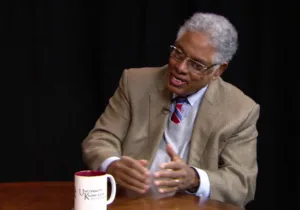President Donald Trump announced last Thursday that he will impose tariffs on steel and aluminum this week. In a recent tweet, President Trump indicates that, because of trade imbalances between the United States and other countries, “trade wars are good.” This view fails to consider both recent history and the economics of trade.
One only has to look back on President George W. Bush’s similar plan to understand the criticism against Trump’s proposed tariffs. In 2002, the Bush administration imposed steel tariffs to protect domestic manufacturers from a surge of imports, yet the international backlash and market response (a 30 percent drop in the S&P 500) led to a policy reversal in December 2003.
Moreover, though the Trump administration cites national security as a justification, the fear is unfounded. Security can be a potential concern in certain contexts, but with the exception of Russia (representing 9 percent of steel imports in 2017), 78 percent of steel imported to the US comes from strategic allies.
With his proposed policy, Trump risks creating friction with allies and harming American consumers who inevitably pay higher prices whenever trade wars occur. While domestic steel and aluminum producers will likely benefit under the proposed tariffs in the short term, US allies are the primary losers. Certain key trading partners may be exempted, but America’s leading source of imported steel and aluminum is Canada, and South Korea is another major steel exporter to the US. The proposed policy also hurts important European partners, and the European Union is poised to retaliate. Therefore, Trump’s new policy would complicate relations with strategic allies whose cooperation the United States needs to help address problems from Russia to North Korea.
The tariff provision represents a common policy problem: it benefits only a few and imposes widespread costs. Imposing a high cost on an essential input to manufactured goods ultimately harms both domestic consumers and other industries that are caught in the trade battle. The US is the largest steel importer globally, with imports up 219 percent since 2009. This massive influx of foreign steel has helped drive the post-recession economic expansion. While the US has lost thousands of jobs in the steel industry during the past decade, employment growth in the automobile manufacturing, construction, and related industrial segments has grown considerably during the recovery. Consumers benefit from lower steel and aluminum prices, and they are likely losers if these tariffs remain.
For every job the Trump administration is trying to protect, over 40 jobs exist in industries that rely on aluminum or steel as a primary input. Therefore, the market responded immediately and negatively to the tariff announcement; this demonstrates the significant anticipated harmful impact industries that buy steel and aluminum expect.
Economists often point to the negative effects of trade barriers and quotas that hurt US consumers, but many of these regulations that protect domestic firms fail to provoke the kind of response last Thursday’s announcement did. It is well known that US consumers pay a much higher price for sugar compared to the world price, more than twice the price on average since 1982, yet cheaper sugar substitutes have mitigated the impact on the domestic prices of goods using various sweeteners. Since consumers, individually, spend a minimal portion of their income on sugar, the political backlash has long-since died off.
On the other hand, steel and aluminum are used not only in automobile manufacturing and construction but in a host of consumer goods from refrigerators to electronics to beer (67 billion cans annually), all of which the metals’ higher prices would affect. Substitutes for these metals take time for market actors to innovate, so average consumers will pay higher prices in the short run. Consequently, the proposed tariffs’ impact could very well diminish the benefit of recent tax changes Congress passed just two months ago.
The narrow benefits of this policy change are certainly focused on domestic steel firms, whose share prices climbed higher despite overall market unease. US firms have a long history of seeking protectionist policy, but experience has shown consumers, and over time US jobs, end up losing.
National security interests notwithstanding, when exports from the US begin to face higher tariffs from countries hurt by President Trump’s efforts to boost the steel and aluminum industries, he would do well to rethink the economic and political costs.
—
Peter M. Frank is Dean and Associate Professor of Economics at the Porter B. Byrum School of Business, Wingate University, Wingate, NC, and a Free Enterprise Fellow at the Jesse Helms Center.
Photo Credit: Aluminum extrusion in a New Jersey factory. By George Estreich, via Flickr.






